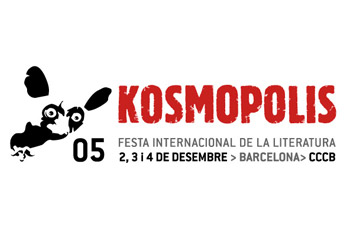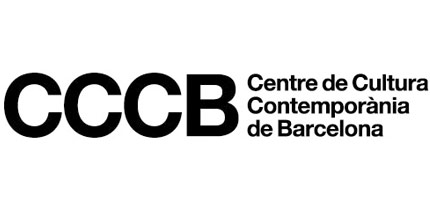Kosmopolis
Kosmopolis 2005
International Festival of Literature: special edition for the Year of the Book and Reading
A year in which the fourth centenary of the Quixote is celebrated, and one also officially dedicated to encouraging a passion for books and reading, means a period of intense media focus upon literature. In what is officially a literary year, Kosmopolis is presenting a special compact edition that changes the festival's biennial nature, to continue taking an in-depth look at the themes and formats that define its spirit.
The printed word, the oral word and the electronicword are combined together on a scene where new types of readers and writers are participating in a change that provokes some resistance, but at the same time is modifying mental habits, aesthetic categories and the ways of creating worlds.
K05 celebrates this special edition with a programme that ranges from the lasting light of Cervantes to the (ambiguous) crisis of the book format, from a literary mapping of Barcelona's Raval district to the dilemma raised by the influence of the Internet in the kitchen of writing, from the emergence of a new third culture humanism to the diverse practices that position literature at the core of urban creativity.
Juan Insua
This activity is part of Kosmopolis
Related contents
Carlos Ruiz Zafón and Sergi Doria: A literary Raval.
The fictions of memory
Conversation between Carlos Ruiz Zafón and Sergi Doria about the city imagery that inspired some of passages of the novel The Shadow of the Wind (2001), readings set in old Barcelona and a legendary nomenclature: District V, barrio Chino, Raval... Part of the program of the ...
Kosmopolis 05. The New Humanists. Science at the Edge
Debate with Marc Hauser, Lee Smolin, Robert Trivers and John Brockman
Charles Darwin's ideas on evolution through natural selection are the basis for these arguments. This talk gives the opportunity to a physicist, a cognitive neuroscientist, and an evolutionary biologist to explain how the common thread of Darwinian evolution has led them to new advances in ...

